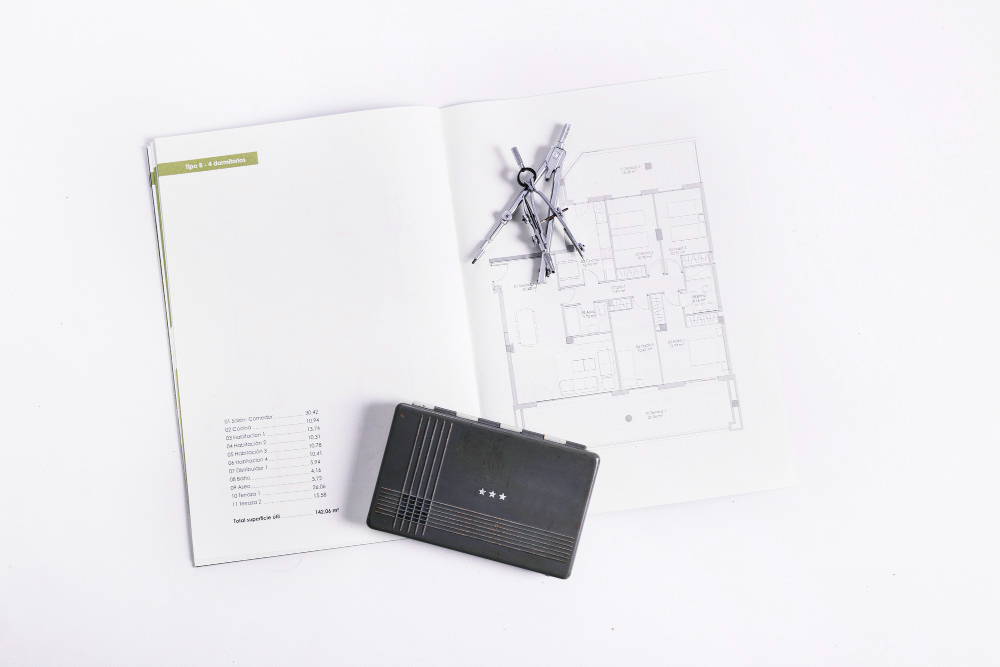What Every Homeowner Should Know Before Renovating or Buying a Home
Updated Tue, May 20, 2025 - 5 min read
Top blog articles
Renovating or buying a home is one of the most significant investments a person can make. Whether you’re transforming your current space or stepping into a new property, proper planning and research are crucial. Taking time to verify property details, check records, and ensure everything is above board can save you from financial and legal troubles down the road. Here’s everything you need to know to make informed decisions about your home.
Why Is Property Research Essential?
Before you commit to a renovation or purchase, thorough research can provide a clear picture of the property’s history and potential risks. Skipping this step can lead to unexpected expenses or complications.
How Can You Verify a Property’s History?
A property’s history reveals vital information about its past renovations, ownership, and legal status. Reviewing property records helps ensure you’re not inheriting someone else’s unresolved issues, such as liens or structural violations.
For example:
- Ownership Records: Confirm the chain of ownership to ensure there are no disputes or claims against the property.
- Renovation Records: Look for documentation of past projects to verify that any renovations were completed legally and meet current building codes.
- Liens or Debts: Check if the property has outstanding liens, as these could become your responsibility after purchase.
By accessing property records, you gain insights that help you avoid surprises and plan your investment wisely.
What Should You Check About the Neighborhood?
The property itself is only part of the equation—its location plays an equally important role. Researching the neighborhood provides valuable insights into:
- Safety: Understand local crime rates and security conditions.
- Schools and Amenities: Learn about nearby schools, parks, and facilities that impact property value.
- Development Plans: Check for upcoming zoning changes or construction projects that could affect your lifestyle or property value.
Read more: What is the purpose of a construction site fence?
What to Know About Building Permits and Renovation Approvals

Whether you’re buying a home or starting a renovation, understanding the role of building permits is critical. Permits ensure that any work done complies with local regulations, protecting you as a homeowner.
Why Are Building Permits So Important?
Building permits are official approvals issued by local government agencies that allow construction or renovation to proceed. They ensure that:
- Work complies with safety codes and zoning laws.
- The property’s structure remains sound and meets community standards.
Failing to obtain permits can lead to:
- Fines and penalties.
- Difficulty selling the property later.
- Potential safety hazards for your family.
Always verify that any past renovations were permitted and properly inspected. This protects you from inheriting liability for unauthorized work.
How to Access Property Records for Permits and Approvals
Property records often include building permit information. By reviewing these records, you can:
- Confirm that past renovations were approved by the city or county.
- Check if inspections were completed to validate the quality of the work.
This step ensures you’re buying or renovating a property with a solid legal and structural foundation.
How to Protect Yourself During the Buying or Renovation Process
Protecting yourself from financial or legal risks is essential when dealing with properties. Taking a few extra steps can safeguard your investment.
What Steps Can You Take to Verify Professionals?
Renovation projects often involve working with contractors, architects, and designers. To ensure quality and reliability:
- Verify that contractors are licensed and insured.
- Research their history of completed projects and client reviews.
- Check property records to confirm that past work on the property matches what was promised.
This step not only ensures your project is in capable hands but also protects you from scams and substandard work.
How Can Identity Monitoring Safeguard Your Investment?
Property-related transactions often involve sharing sensitive personal information, which could expose you to fraud or identity theft. To protect yourself:
- Limit sharing personal information unnecessarily.
- Use secure methods for sharing and storing financial details.
- Stay vigilant against fraudulent activities by monitoring property and identity records.
Being proactive can save you from costly mistakes and protect your peace of mind.
Tips for Homeowners Planning Renovations
Planning is key to a successful renovation. Proper preparation ensures that your project stays on budget and meets your expectations.
How Can You Accurately Estimate Renovation Costs?
Accurate cost estimation prevents financial strain during renovations. Use tools or calculators that:
- Consider local labor and material costs.
- Factor in permits, unexpected expenses, and contingency funds.
This approach gives you a realistic idea of what your renovation will entail and helps you avoid overspending.
What Documents Should You Organize Before Starting a Project?
Having the right documents in place streamlines your renovation process. Essential records include:
- Property deeds and blueprints.
- Building permits and renovation plans.
- Agreements with contractors, including warranties and timelines.
Organizing these documents ensures smoother communication and compliance with local regulations.
Whether you’re buying a home or planning a renovation, being informed is your greatest asset. From verifying property history and neighborhood trends to ensuring proper permits and trustworthy professionals, every step you take strengthens your investment. By leveraging property records and thorough planning, you can avoid unnecessary risks and create a home that’s both safe and valuable. Remember, preparation and diligence today pave the way for a secure future.
Read more: Estimate cost of selling home









